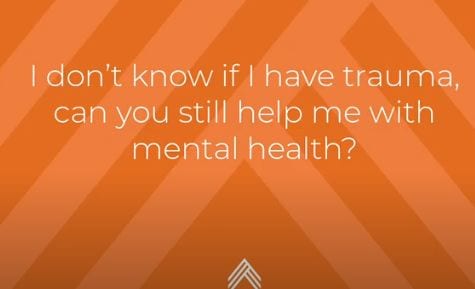Lana Seiler
Absolutely. Oftentimes, the concept that we have of trauma is a little more extreme. We think of things like car accidents, or getting held up at gunpoint, or even nearly escaping a fire, things like that, or being in a war, that’s often another thing that we think of as trauma. Those are definitely traumas, but they’re what we call big T traumas. They’re more extreme.
What I find, at least in my work, is that a lot of what people struggle with later in life are the little T traumas, which are more relational. Things that have happened in our close relationships that were traumatizing earlier in life. That can be harder to identify because a lot of times the way we grew up is just what we think is normal until we find ourselves struggling later on, and we get into some treatment or therapy, or we read a book and we’re like, “Wow. That describes me.” It’s totally normal to not be able to identify specific traumas, and still feel the negative effects later in life, and be in maladaptive patterns.




